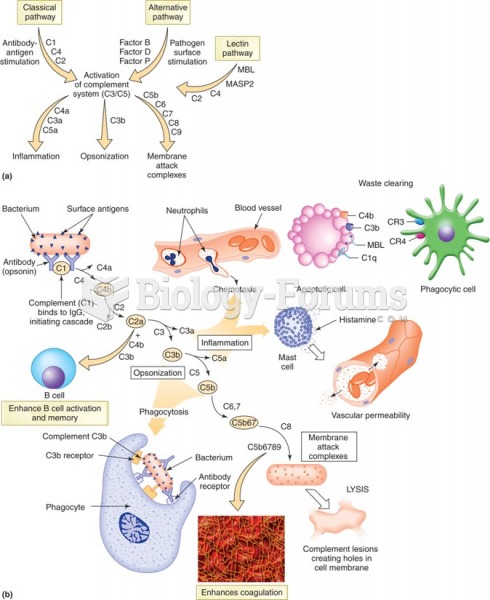|
|
|
To combat osteoporosis, changes in lifestyle and diet are recommended. At-risk patients should include 1,200 to 1,500 mg of calcium daily either via dietary means or with supplements.
According to research, pregnant women tend to eat more if carrying a baby boy. Male fetuses may secrete a chemical that stimulates their mothers to step up her energy intake.
Vital signs (blood pressure, temperature, pulse rate, respiration rate) should be taken before any drug administration. Patients should be informed not to use tobacco or caffeine at least 30 minutes before their appointment.
Between 1999 and 2012, American adults with high total cholesterol decreased from 18.3% to 12.9%
An identified risk factor for osteoporosis is the intake of excessive amounts of vitamin A. Dietary intake of approximately double the recommended daily amount of vitamin A, by women, has been shown to reduce bone mineral density and increase the chances for hip fractures compared with women who consumed the recommended daily amount (or less) of vitamin A.
 James Madison was a key figure at the Constitutional Convention of 1787 in Philadelphia. He not only
James Madison was a key figure at the Constitutional Convention of 1787 in Philadelphia. He not only
 Three pathways of complement combined. (a) Figure shows a summary of how each pathway proceeds. (b) ...
Three pathways of complement combined. (a) Figure shows a summary of how each pathway proceeds. (b) ...





